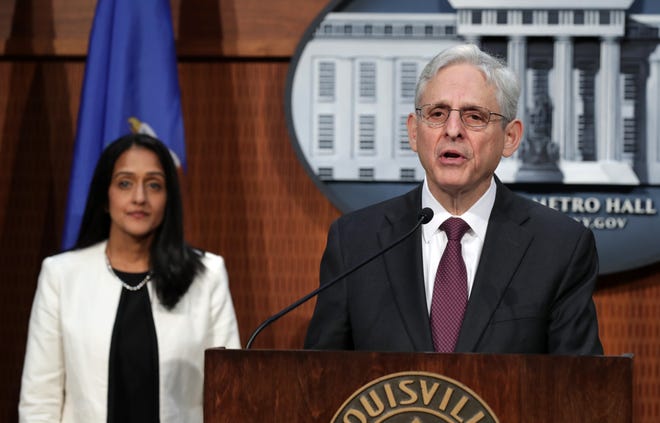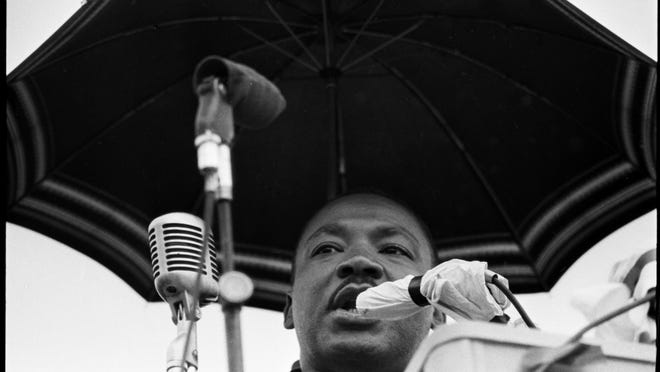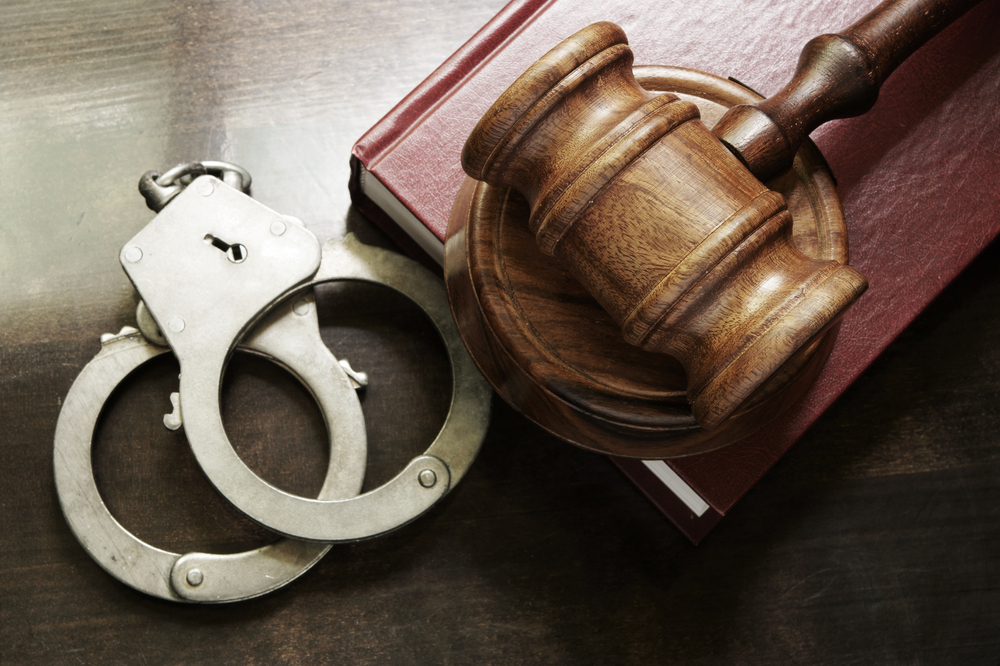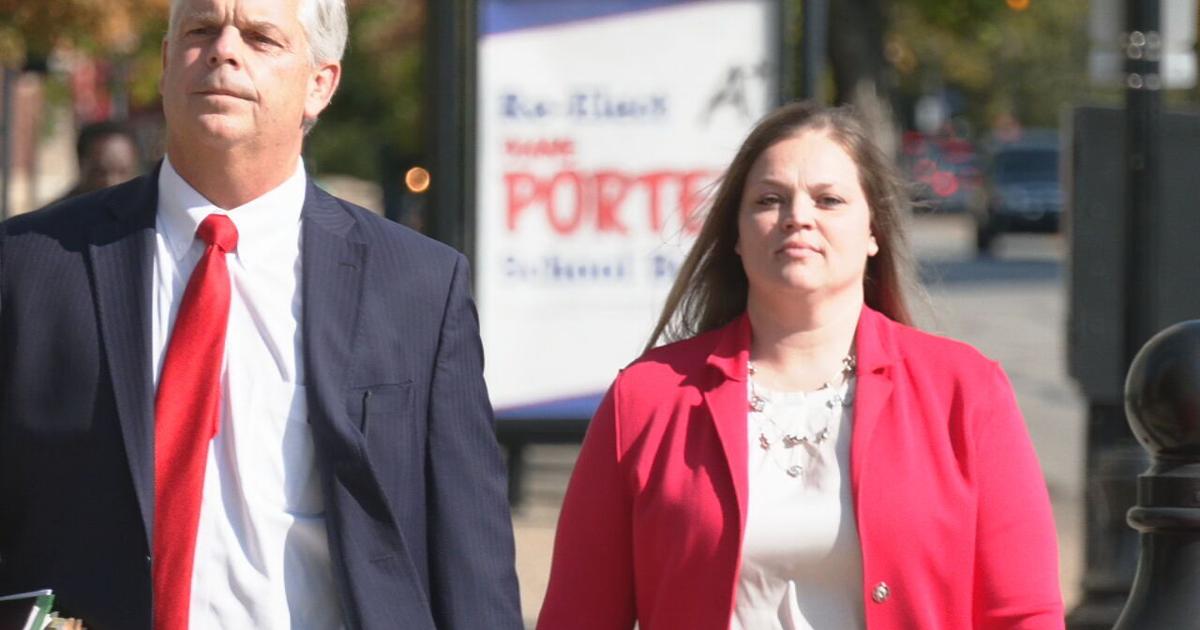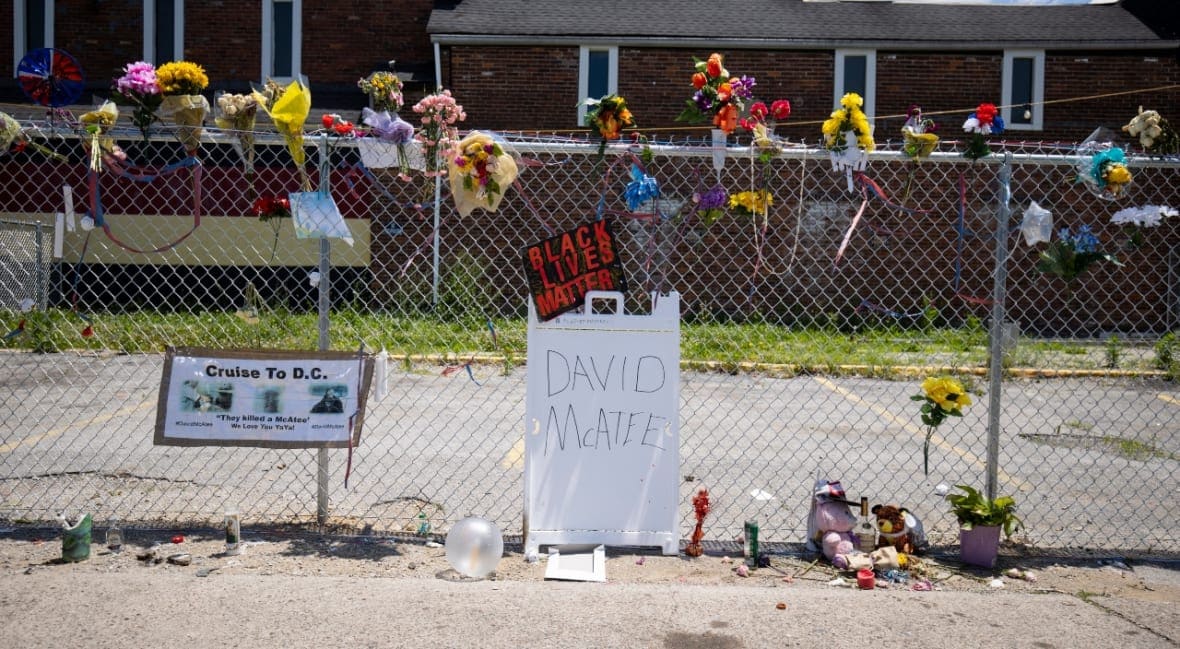Ex-officer involved in 2020 protest shooting avoids prisonLOUISVILLE, Ky. — A former Louisville police officer blamed for instigating a deadly shooting during the 2020 protests over the death of Breonna Taylor was sentenced Monday to two years of probation.Katie R. Crews, 30, pleaded guilty last year to one count of using excessive force during a curfew crackdown in 2020 that ended with the fatal shooting of restaurant owner David McAtee.
U.S. District Judge Benjamin Beaton called Crews' actions "incredibly dangerous" and doubled a one-year recommended probation period to two years.Beaton said he was reluctant to allow Crews to avoid prison time, but was told that McAtee's family had given their blessing to the recommended sentence."None of us should minimize this," Beaton said during the hourlong hearing Jan. 30. Crews was also ordered to perform 200 hours of community service, and she can no longer work in law enforcement.Also Monday, lawyers for McAtee's family announced the settlement of a wrongful death lawsuit. The suit filed against Louisville Police, two National Guard members and Crews was settled for $725,000, said attorney Steve Romines.The Associated PressSt. Louis to pay $5.2 million after 2017 mass arrestsST. LOUIS — The city of St. Louis will pay nearly $5.2 million to settle claims by people who were arrested during a protest in 2017 over the acquittal of a police officer in the shooting death of a Black man, the St. Louis Post-Dispatch reported.According to a proposed class action settlement filed last week, the city agreed to pay $4.91 million, or about $58,500 per person, to 84 people who were protesting in downtown St. Louis.The lawsuit claimed the protesters' rights were violated when they were caught in a police "kettle" as officers surrounded and arrested everyone in the area. Three people who filed individual lawsuits settled from $85,000 each.They were protesting after former St. Louis police officer Jason Stockley was acquitted in the Dec. 20, 2011, shooting death of Anthony Lamar Smith.Protesters said police surrounded more than 120 people who officers said did not follow dispersal orders. Several people claimed police used excessive force and indiscriminate pepper spray, including against bystanders who were not protesting.The city denied any wrongdoing as part of last week's settlement. A city spokesman declined comment.The Associated PressWhite supremacists who attacked Black DJ sentencedSEATTLE — Four white men with white supremacist ties were sentenced in federal court in Seattle for a 2018 assault on a Black DJ at a bar in the suburb of Lynnwood.
Judge Richard Jones sentenced the men to varying prison terms, the Daily Herald reported in late January.Jason DeSimas, of Tacoma, will serve four years. Under a plea agreement, prosecutors and the defense recommended just over three years. Jason Stanley, of Boise, Idaho, had the same plea deal. Jones sentenced him to four years, as well.Randy Smith, of Eugene, Oregon, got 3½ years in prison. And Daniel Dorson, of Corvallis Oregon, got 2⅓ years.All four were previously convicted of committing a hate crime and making false statements. The man they attacked, Tyrone Smith, said outside the courthouse that his life is forever changed.The judge also ordered the defendants to pay nearly $171,000 in restitution to cover lost wages and medical bills. He called the attack that of a "modern day unhooded KKK."Smith said the defendants' actions changed him from an outgoing person who DJ'ed for his friends for fun, to someone who struggles with anxiety and uses a cane.On Dec. 7, 2018, DeSimas and others traveled to Lynnwood on the way to visiting the site of a Whidbey Island cabin where Robert Jay Mathews, the neo-Nazi leader of the violent hate group The Order, died in a gunfight with federal agents on Dec. 8, 1984. It has become a far-right holiday, known as Martyr's Day."As we can all see, it's been a long road for me," Smith said. "But I had enough courage to come down and make sure this process was handled and justice was actually served."On Dec. 7, 2018, DeSimas and others traveled to Lynnwood on the way to visiting the site of a Whidbey Island cabin where Robert Jay Mathews, the neo-Nazi leader of the violent hate group The Order, died in a gunfight with federal agents on Dec. 8, 1984. It has become a far-right holiday, known as Martyr's Day.That night, DeSimas attended a gathering with other white supremacist sympathizers, prosecutors said. Shortly after midnight, about a dozen of them went to the Rec Room Bar and Grill. Some wore jackets with patches indicating their white supremacist beliefs and some had similar tattoos, including some depicting swastikas, prosecutors said.At some point, Stanley messed with Smith's DJ equipment. Smith pushed him away. In response, DeSimas and others surrounded Smith, using racist slurs while kicking, punching and stomping on Smith, prosecutors said. Witnesses who tried to intervene were also attacked.The men then left the bar and went to Whidbey Island, where they attended the Martyr's Day event.Federal prosecutors indicted the men in December 2020. Citing insufficient evidence, Snohomish County prosecutors declined to charge six other men who were at the tavern the night of the attack.DeSimas wrote in a letter to the judge that he was "ashamed" of his actions, saying he no longer shared the views he previously held.Dorson wrote in a similar letter that he was "disgusted by the fear I took part in creating."Nick Brown, the U.S. Attorney for Western Washington, said seeking consequences for the attack was a high priority for the Justice Department and the FBI.Rick Collodi, the FBI's special agent in charge of Seattle's field office, said the defendants tried to conceal their actions, but the truth came out."The four defendants admitted to being members of a white supremacist group," Collodi said. "While they have the right to believe what they want, they do not have the right to commit a crime."

